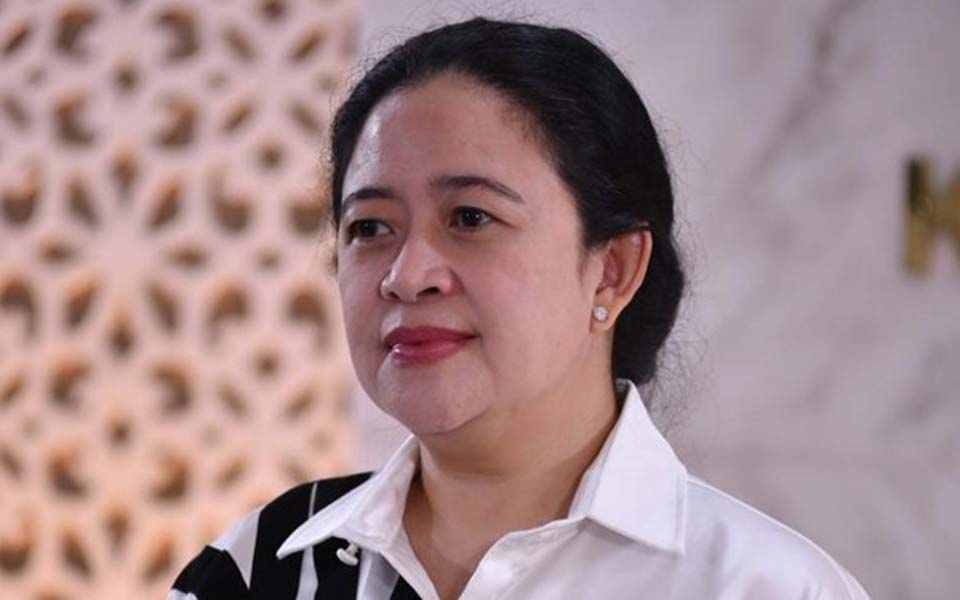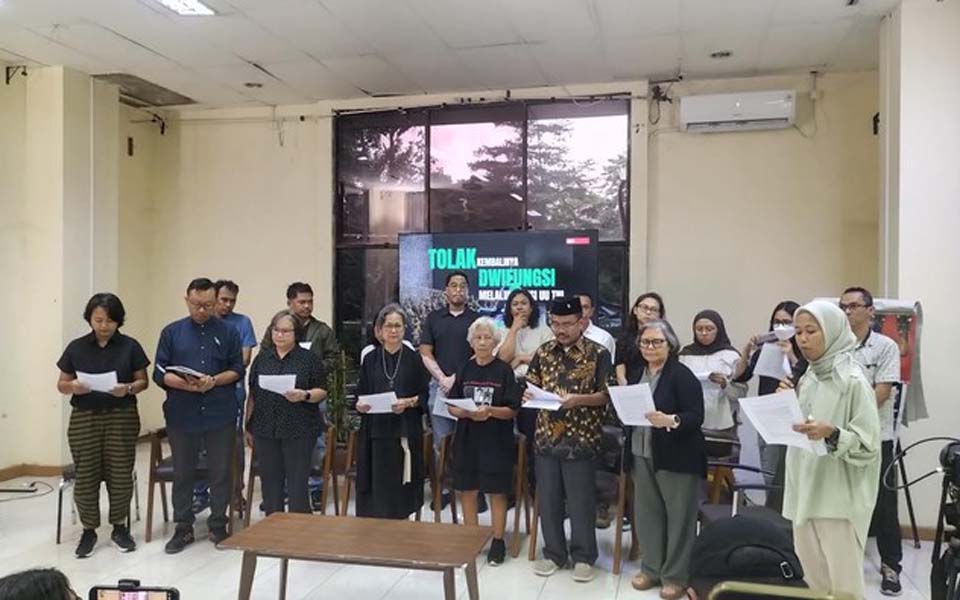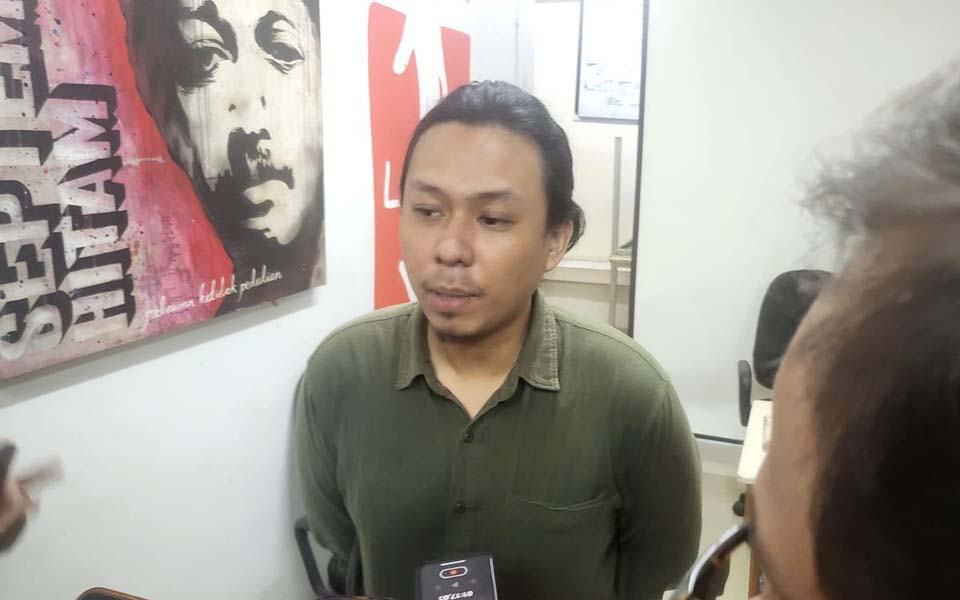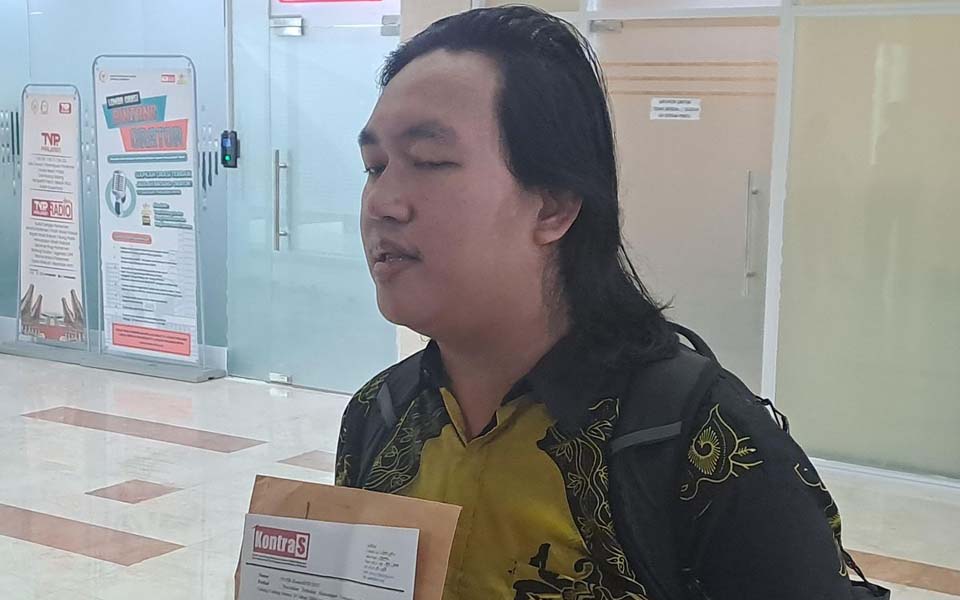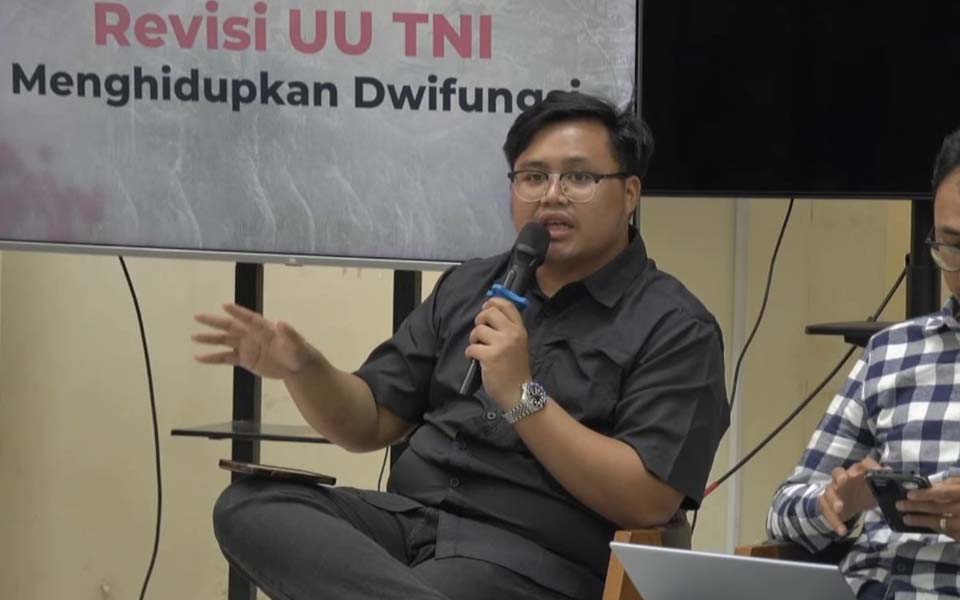Jakarta – The House of Representatives (DPR) officially passed the Draft Omnibus Law on Job Creation into law during a plenary meeting on Monday October 5. The House accelerated the scheduled ratification – which had been planned for October 8 – on the grounds that the number of Covid-19 cases is continuing to rise.
Trade unions, which had initially planned to hold protests, were blocked in the regions. Attempts to hold demonstrations were also banned on the grounds of the corona virus pandemic. Workers were planning to hold a continuous three day strike.
On social media meanwhile the hashtag #MosiTidakPercaya (Motion of No Confidence) appeared, which became the most popular trending topic on Twitter in Indonesia. The motion declared that the people no longer have confidence in the DPR and the government after enacting the Omnibus Law, which was ridden with controversy.
Indonesian Forum for the Environment (Walhi) Executive Director Nur Hidayati claimed that the ordinary people’s trust in the DPR and the government has further declined following the enactment of the law. Hidayati said that what was done by the DPR was the climax of the state’s betrayal of the people’s wishes.
“The enactment of the Draft Omnibus Law on Job Creation represents the climax of the state’s betrayal of the rights of workers, farmers, traditional communities, women and the environment as well as future generations”, Hidayati told CNN Indonesia on Tuesday October 6.
Hidayati said that opposition by various social organisations did not prevent the DPR and the government from continuing the deliberations on the draft law. The DPR and the government did not even care about the protests by social groups. According to Hidayati, this showed that Indonesian democracy has taken a step back.
“The enactment of the Draft Omnibus Law was an evil conspiracy of a legislative process which ignored human rights and the environment”, she said.
Hidayati herself noted that there are several crucial stipulations in the Omnibus Law on the environment. Several of these related to the abolition of environmental requirements as a precondition for the issuance of business licenses, a reduction in absolute and criminal liability for corporations and the extension of contracts in forestry and mining.
Hidayati said that the law will further perpetuate the domination of capital and accelerate environmental damage. In addition to this, said Hidayati, the Omnibus Law will reduce and even abolish public participation in issuing permits for businesses and seeking redress in the courts.
“Walhi itself has explicitly handed down a motion of no confidence. The enactment of the Draft Omnibus Law was an unconstitutional and undemocratic act which must be resisted as strongly as possible”, she said.
Speaking separately, Forum of Concerned Citizens for Indonesia’s Parliament (Formappi) researcher Lucius Karus believes that the alleged need to speed up enactment of the law was fabricated. Karus said that the people’s representatives should have postponed the deliberations and the enactment of the law during the Covid-19 pandemic rather than rushing it into law.
“This looks as if they took advantage of corona as a shield to deceive the public”, Karus told CNN Indonesia on Tuesday.
Karus is of the view that it is odd that the DPR used the Covid-19 pandemic as grounds to bring the plenary meeting forward to enact the law and that from the start the House has taken advantage of the pandemic to smooth the way for quick deliberations on the law.
According to Karus, the DPR manipulated and deceived social groups opposing the Omnibus Law by accelerating the enactment. “A pattern by the DPR’s of deceiving social groups during the Omnibus Law’s deliberations was used right from the start”, he said.
On the other hand, said Karus, the Omnibus Law represented a special mission for the government and the DPR. According to Karus, the government and the DPR had already agreed on the contents of the draft law since the draft was first sent to the DPR back in February.
Karus said that the deliberations on the law over the last month were only to seek legitimacy for a law – which from the start – was a mission for the government and its coalition partners in parliament.
“Actually, behind all this the DPR the government could in fact be seen to have succeeded in distancing the public from discussions on the substance of the draft law”, said Karus.
Indonesian Institute of Science (LIPI) researcher Wasisto Raharjo Jati meanwhile believes that the public’s trust in the DPR and the President Joko “Jokowi” Widodo has not taken a hit across the board. According to Jati, only among labour groups, activists, informal workers and the private sector has the level of trust begun to fade.
“I think this is because they are in the position of the largest economic contributors where they dominate 61-70 percent [of economic activity]”, said Jati.
Nevertheless, said Jati, opposition to the Omnibus Law does not reflect the majority of society because there are still social groups which consider Widodo’s policies to be superior and important to accelerating Indonesia’s economic growth.
“Especially because of Indonesia’s position as a member of the G-20”, said Jati. (rzr/fra)
[Translated by James Balowski. The original title of the article was “Walhi: Omnibus Ciptaker Puncak Pengkhianatan Negara ke Rakyat”.]






